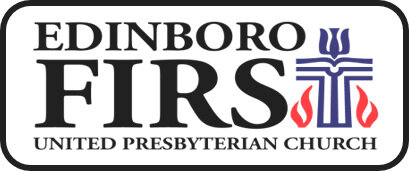Sermons are conversations. I trust that the Holy Spirit has been at work in your heart and mine long before 10: 45 AM on Sunday morning and remains at work far longer than the roughly 20 minutes I get to share with you every week. Some evidence of God's work is your willingness to share with me your thoughts following worship.
For example: Someone helpfully pointed out this past Sunday that I was mistaken in my presentation of Ulrich Zwingli as an Anabaptist. Zwingli was quite opposed the Anabaptist movement despite the fact they held very similar theological views on the Lord's Supper. But Zwingli held that this group of Christians took the test of faith being the born again experience too far. "In their [Anabaptist] own minds, however, they were simply carrying Zwingli's biblicism to its logical conclusion..." ("A History of the Christian Church" Walker, pg. 450.) I'm hope my error didn't offend too much and that it didn't detract from the idea that over the course of history the Lord's Supper has at times been an offense.
I hope the sermon doesn't end in the narthex either. Invariably, I seem to stumble upon a quote or situation during the week that brings Sunday's sermon back to mind. That happened this week as well. I was catching up on a program I occasionally listen to and heard an interview with John O' Donohue in which he said the following:
"And, I think for parenting, for relationships, and for all the domains of our endeavor and work, to have access to a religious tradition is a huge strengthening, critical resource, which keeps you wide awake and makes you ask yourself the hard questions. Like, I've always thought that tradition is to the community what memory is to the individual. And if you lose your memory, you wake up in the morning, you don't know where you are, who you are, what ground your standing on. And if you lose your tradition, it's the same thing." - John O' Donahue (from his 8/6 Interview on "On Being with Krista Tippet")
I hope this past Sunday's sermon gave you a little bit better understanding of the tradition of the Lord's Supper and how it informs who we are as Christians. In the face of rampant consumerism, is the idea that all we need is the body and blood of Christ offensive? Is it offensive that Jesus tells us that in the body and blood we find unity when there seem to be so many reasons to divide ourselves from others? Given our experience of the ubiquity of death, does Jesus' gift of life eternal offend commonsense? If you're interested, you can listen to this sermon here.
